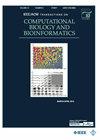用于零注射药物靶点相互作用预测的蛋白质-上下文增强型主从框架。
IF 3.4
3区 生物学
Q2 BIOCHEMICAL RESEARCH METHODS
IEEE/ACM Transactions on Computational Biology and Bioinformatics
Pub Date : 2024-09-27
DOI:10.1109/TCBB.2024.3468434
引用次数: 0
摘要
药物靶点相互作用(DTI)预测在硅内药物发现中起着至关重要的作用,尤其是对深度学习(DL)模型而言。根据这一思路,现有方法通常首先从药物和靶蛋白中提取特征,然后使用药物-靶蛋白对训练 DL 模型。然而,这些基于 DL 的方法基本上依赖于大量数据中同源蛋白质所定义的相似结构和模式。当已知的新发现蛋白质及其同源蛋白质的药物-靶标相互作用很少时,预测性能就会明显下降。在本文中,我们提出了一种新颖的蛋白质上下文增强型主从框架(PCMS),用于零次 DTI 预测。该框架有助于为新发现的目标蛋白质高效发现配体,解决了在没有先验数据的情况下预测相互作用的难题。具体来说,PCMS 框架由两个主要部分组成:主学习器和从学习器。主学习器首先学习目标蛋白质的上下文信息,然后自适应地为从学习器生成相应的参数。然后,从属学习器在不同的蛋白质上下文中执行零次 DTI 预测。在两个公开数据集上进行的大量实验验证了我们的 PCMS 在各种指标上与最先进方法相比的有效性。一旦论文被接受,我们将公开代码和处理过的数据。本文章由计算机程序翻译,如有差异,请以英文原文为准。
A Protein-Context Enhanced Master Slave Framework for Zero-Shot Drug Target Interaction Prediction
Drug Target Interaction (DTI) prediction plays a crucial role in in-silico drug discovery, especially for deep learning (DL) models. Along this line, existing methods usually first extract features from drugs and target proteins, and use drug-target pairs to train DL models. However, these DL-based methods essentially rely on similar structures and patterns defined by the homologous proteins from a large amount of data. When few drug-target interactions are known for a newly discovered protein and its homologous proteins, prediction performance can suffer notable reduction. In this paper, we propose a novel Protein-Context enhanced Master/Slave Framework (PCMS), for zero-shot DTI prediction. This framework facilitates the efficient discovery of ligands for newly discovered target proteins, addressing the challenge of predicting interactions without prior data. Specifically, the PCMS framework consists of two main components: a Master Learner and a Slave Learner. The Master Learner first learns the target protein context information, and then adaptively generates the corresponding parameters for the Slave Learner. The Slave Learner then perform zero-shot DTI prediction in different protein contexts. Extensive experiments verify the effectiveness of our PCMS compared to state-of-the-art methods in various metrics on two public datasets.
求助全文
通过发布文献求助,成功后即可免费获取论文全文。
去求助
来源期刊
CiteScore
7.50
自引率
6.70%
发文量
479
审稿时长
3 months
期刊介绍:
IEEE/ACM Transactions on Computational Biology and Bioinformatics emphasizes the algorithmic, mathematical, statistical and computational methods that are central in bioinformatics and computational biology; the development and testing of effective computer programs in bioinformatics; the development of biological databases; and important biological results that are obtained from the use of these methods, programs and databases; the emerging field of Systems Biology, where many forms of data are used to create a computer-based model of a complex biological system

 求助内容:
求助内容: 应助结果提醒方式:
应助结果提醒方式:


